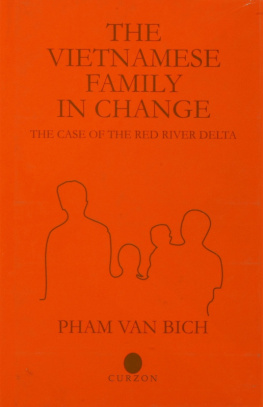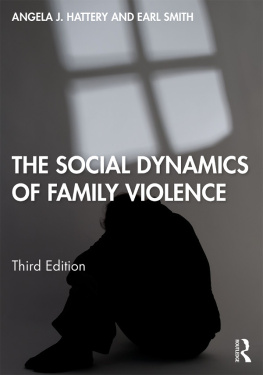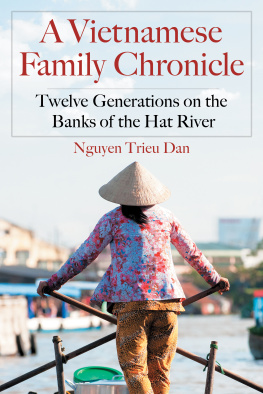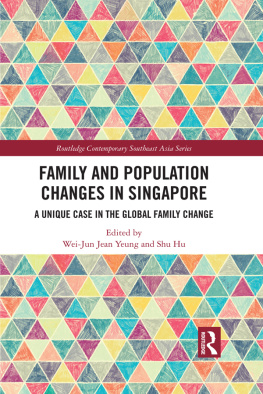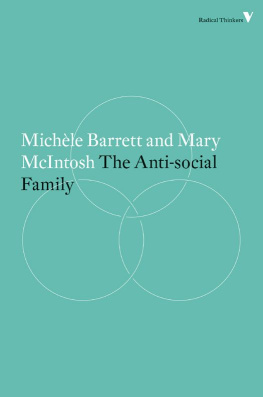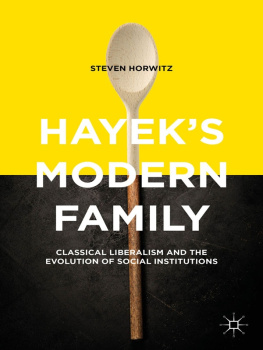THE VIETNAMESE FAMILY IN CHANGE
NORDIC INSTITUTE OF ASIAN STUDIES
Recent studies of Vietnamese history and society
Authority Relations and Economic Decision-Making in Vietnam: An Historical Perspective
Dang Phong and Melanie Beresford
Womens Bodies, Womens Worries: Health and Family Planning in a Vietnamese Rural Community
Tine Gammeltoft
Thailand and the Southeast Asian Networks of the Vietnamese Revolution, 1885-1954
Christopher E. Goscha
Vietnam or Indochina? Contesting Concepts of Space in Vietnamese Nationalism, 1887-1954
Christopher E. Goscha
Vietnam in a Changing World
Irene Nrlund, Carolyn Gates and Vu Cao Dam (eds)
Profit and Poverty in Rural Vietnam: Winners and Losers of a Dismantled Revolution
Rita Liljestrm, Eva Lindskog, Nguyen Van Ang and Vuong Xuan Tinh
The Vietnamese Family in Change:
The Case of the Red River Delta
Pham Van Bich
The Vietnamese Family in Change
The Case of the Red River Delta
Pham Van Bich
CURZON
Nordic Institute of Asian Studies
Vietnam in Transition series
First published in 1999
by Curzon Press
15 The Quadrant, Richmond
Surrey TW9 IBP
Publication of this volume was assisted by a grant from the Department for Research Cooperation (SAREC) at the Swedish International Development Agency (Sida)
Copyright 1999 by Pham Van Bich
British Library Catalogue in Publication Data
Bich, Pham Van
The Vietnamese family in change : the case of the Red
River Delta
1.Family - Vietnam 2.Vietnamese - family relationships
I.Title
306.8509597
ISBN 0-7007-1105-8
In memory of my father and to my daughter
Preface
This book results from a reworking of my doctoral dissertation at the Department of Sociology, the University of Gteborg, Sweden. I would like to thank Gran Therborn - my dissertation tutor - who went through the earlier versions of the manuscript in great detail. Thanks to his reading and commenting, my many arguments were reconsidered and reformulated. I have tried to incorporate many of his invaluable suggestions, but I am afraid that the results are not fully satisfactory. I should like to thank him especially for his encouragement.
Edmund Dahlstrom and Rita Liljestrm provided a great many thought-provoking comments on my manuscript, suggesting numerous valuable improvements. I would like to acknowledge here that they have greatly influenced my thinking. Rita Liljestrm not only read and commented on my manuscript, but also helped in the initial contact with MAS Publishing and, even before then, brought me to Sweden.
Last, but not least, I would like to thank Leena Hskuldsson, Gerald Jackson and Janice Leon of NIAS Publishing. This book would probably never have come out if it had not been for their hard work and patience.
PVB
The family was traditionally regarded as one of the key institutions of the Vietnamese society. Almost everybody among the marriageable population was either married or wanted to be. The family satisfied nearly all the basic needs of ones life from the cradle to the grave. Attachment to the family was so strong that everything, including the concept of nation, was subordinated to the family in Vietnamese culture (Woodside, 1976: 28). In the words of a Vietnamese scholar, if one takes into consideration the fact that the pivotal force of this society was neither a political nor an economic institution, but the institution of the family, then the essential trait of the society resides in the preponderant influence of the family in all realms: religious, cultural and social (quoted in Le Thi Que, 1986: 3).
However, that is about the pre-1945 period. The half century since 1945 (the date that marks a great turning point in Vietnams history) has witnessed probably the most fundamental socio-economic transformation not only at village level (Luong Van Hy, 1992: 163), but also at nation-wide level. Since coming to power that year, the Communist Party has been carrying out its radical socio-economic programmes to change society in accordance with its ideas of modernisation, first of all in the north of the country, and since 1975, in the whole country. That has led to dramatic changes in every aspect of society.
What about the family in these circumstances? How has the family changed, especially as the Communist Party espouses, as part of its ideology, the Marxist theory of the family, which affirms that the family must be transformed? The core idea of this theory is that most problems in family life are rooted in ownership of private property. That is why great efforts have been made to eliminate the root of the problem; collective arrangements have also been made to replace and/or transform the family. In view of all these changes, one might suppose that all problems have been eradicated. As a hero in the well-known novel by Ma Van Khang (1985) puts it, for quite a long time, one has had the impression that there is no longer anything left to discuss in relationships between father and children, husband and wife, and siblings. Nevertheless, does that really resolve the problems of the traditional family? Are there any problems inherent in the present one? In fact, especially after the American war (since 1975) a number of family problems have come to the fore. Many of them are remnants from the old-style family; others have been brought about by the changes that the family has undergone.
This study is about the family and its changes in a northern part of Vietnam, i.e., the Red River Delta. The aim is to examine how the family has changed under the impact of the recent social transformations of the last half century (194595). The study first seeks to put the family in a wider socio-cultural context. It does this by situating the traditional family within the social matrix of the first half of this century, when the traditional culture existed together with French influence, and next by relating the contemporary family to recent social changes. Thus the Vietnamese family is related to the wider socio-cultural context, and should be understood in this context. In other words, if the family is usually associated with the home, this study attempts to place what is going on in the home into the wider context of major transformations going on outside it.
Next, the present study seeks to compare the contemporary family to the traditional one in order to highlight the differences. The changed and unchanged traits become clear when the dynamics of transformation are examined. What kind of change is taking place? What are the causes of the change? The purpose of this study is to try to answer these questions. However, the study does not claim to provide a comprehensive overview of the family in every respect, especially if we bear in mind the vitality of the extended kinship network in Vietnam.
It could be said that in Vietnam, the family is a group of people who are related by blood and marriage ties; who often live together; and who co-operate economically to satisfy the basic needs of their life: production, consumption as well as those of human reproduction childbearing, childraising, caring for the elderly, etc.1 In its most common form, the family usually includes a man and a woman and their children, whether their own or adopted. It may or may not include other relatives. However, it is only a link of generational continuity and often keeps close ties with other relatives to guarantee this continuity. We shall see later that the family is viewed by its members mainly in terms of its temporal dimension and location: people emphasise the temporal continuity of lineage and the family. The family is just a link in the lineal, generational chain that has to be continued forever. Family relations compose of relations across time. In this sense, the family is understood and seen in relations with other (previous/next) generations. The central concern is the overlap of generations. To the Vietnamese, the past never absents from the present and the future; the family is the connecting link of all these. So it is necessary to specify the areas of the Vietnamese family that will form the focus of this study.

